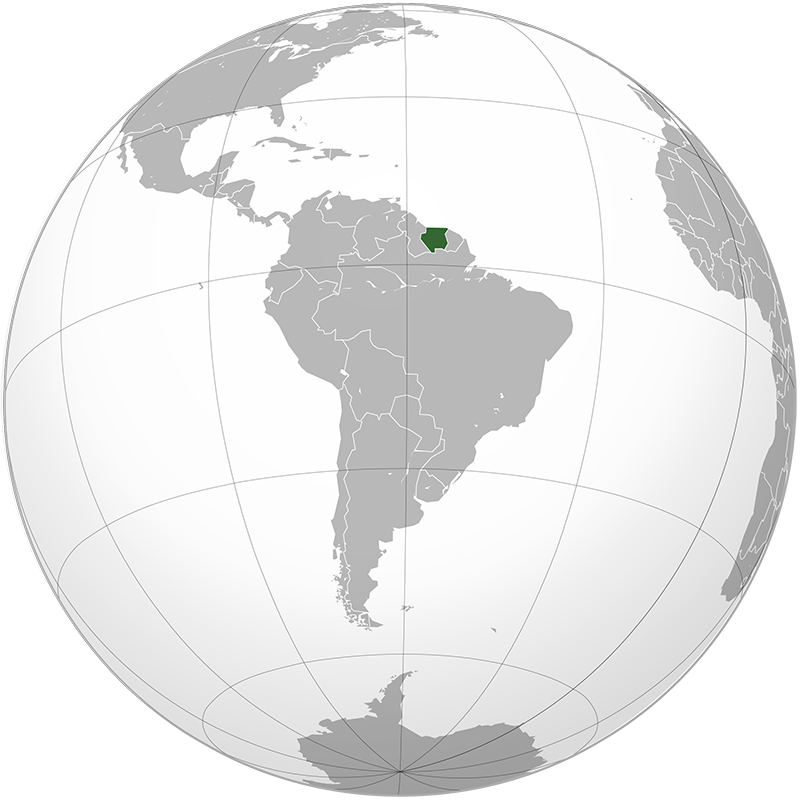
- Population:
- 634,000
- Religion:
- Christianity
Suriname was a Dutch colony until gaining independence in 1975. It has a multicultural population and an economy based on natural resources, including gold, oil, and bauxite. The country continues to develop its tourism and agriculture sectors.
Suriname, officially the Republic of Suriname, is a country on the northeastern Atlantic coast of South America. It is bordered by the Atlantic Ocean to the north, French Guiana to the east, Brazil to the south, and Guyana to the west. Covering an area of approximately 163,820 square kilometers, it has a population of about 600,000 people as of 2023, making it the least populous country in South America. The capital and largest city is Paramaribo. The official language is Dutch, with Sranan Tongo and other local languages also spoken. Suriname operates as a unitary parliamentary constitutional republic. The economy is dominated by the mining industry, particularly oil, gold, and bauxite, along with agriculture and forestry. Suriname is known for its diverse culture, tropical rainforests, and as one of the most forested countries in the world. The country is a member of international organizations such as the United Nations, the Caribbean Community (CARICOM), and the Union of South American Nations (UNASUR).






